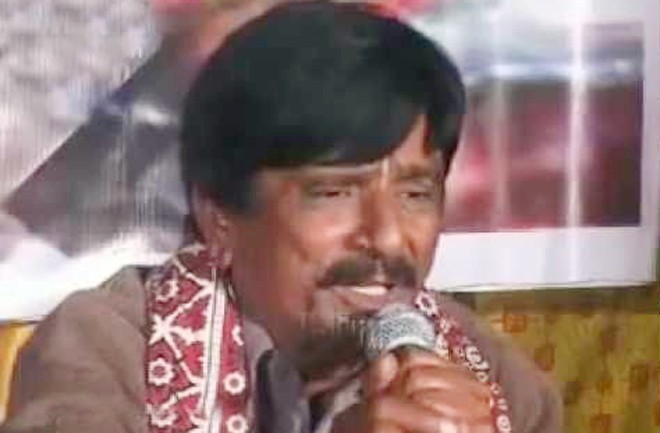
Parwana and Mastana always sang together songs that were effusive and carried melodramatic intent. With the death of Naseer Mastana last week, the duo has been broken

Naseer Mastana and Jamil Parwana performed together as "Mastana Parwana" to sing centuries-old folk songs during their career which spanned over four decades. With the death of Naseer last week, the duo has been broken. Jamil Parwana is left all by himself to carry the burden of singing a vast repertoire of songs that are very much organic to the culture of southern Punjab and upper Sindh.
They must have been popular or carried an expression in music that was particular to the area, for them to be promoted by those upholding the Punjabi ang in music as well. They were invited to Lahore in the 1980s and many in the city applauded and acknowledged the particularity of their singing style. They did a number of programmes for television and were also recorded in the studios of Raza Kazim, which now carries the titled of Sanjan Nagar. This was seen by many as certification of having achieved a certain quality in music.
They first got known to the wider world when the Radio Station at Multan was commissioned in the early 1970s. A whole lot of musicians, vocalists and music forms which were peculiar to the area had wider audiences. The musical abilities of many who just sang and played on the shrines or people’s baithaks became known to an audience that was not exclusively local. In 1972, he along with his younger brother Jamil Parwana started his career with an epic song ‘Khush Pia Wasey Shala’ which made them a household name in the Seraiki-speaking region, especially when this melodious item was broadcast from Radio Pakistan, Multan.
The cassette revolution was to follow when smaller recording outfits in modest settings started not only to record but also distribute and market, particularly folk music. These recordings did have an audience as people wanted to listen to them. These recording companies distributed cassettes in hundred of thousands to a listening audience that was waiting for a cheap option to access music.
Initially, Ustads Salamat and Nazakat Ali Khan had lived in Multan after partition and started to sing the kaafi in the classical ang, carrying forward a tradition probably initiated by Ali Buksh Khan, the father of Bade Ghulam Ali Khan. Later in the 1960s, on the one side was the very impassioned rendition of Pathaney Khan, who was also formally trained by the likes of Amir Khan, the uncle of ustad Ashiq Ali Khan and on the other were just singers who sang the kalam basically in purely geet ang.
Somewhere in the middle were vocalists like Parwana Mastana who were invested a little more musically than the straight rendition of some vocalists. Another very popular vocalist was Mansoor Malangi who also contemporised through his lyrics the compositions which had been sung for generations. He too specialised in the geet ang.
The village bard is supposed to be a poet and a vocalist with the aiktara as part of his gear. He may sing the mustanad kalam of great poets or of those not that well-known or even one’s own musings. He can also switch easily from one to the other given his mood and his liking of the audience. Thursday is usually designated as the day of music and rendition throughout the northern part of the subcontinent. Poetry from being sung was preferred to poetry being heard or read.
Parwana and Mastana belonged to that tradition and they always sang together and usually the kalam of poets who were popular or were on the verge of gaining popularity. Usually in the geet ang, the numbers were more in line with sentiments that are effusive and carry melodramatic intent. The two of them added another layer to the vocal rendition to appear weighty and more evocative.
According to Jamil Parwana, they had sung more than six thousand songs including kafi, sehra, doha and mahiya in seraiki and other languages. It may be mentioned that sehras and mahiyas were sung in a particular form and were kind of a variation of the more generic form, the geet. With the passage of time and more intermixing of genres, these are now treated purely as geets but it was not so.
Parwana and Mastana were able to still carry the fine distinction between the various folk forms that were very much part of the cultural fabric of a living social order. Their musical forms were not for the highly initiated audiences to be sung by very skilful vocalists but were sung by competent vocalists who were integrated to the cultural practices and understood the significance of the form and its relevance.
Naseer Mastana was associated with Radio Pakistan, Bahawalpur till his death, and only a month ago performed there for the last time.